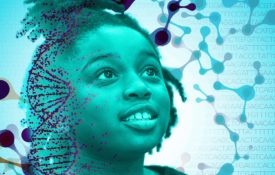-

Diversity, Trust, and Informed Consent: Making Genetics Research Effective for All
Research on genetic risk factors is paving the way for precision mental healthcare, but the field needs more racially diverse participants and perspectives for all people to benefit equally.
-

The Bad-Behavior Blend
“The one gene, one disease idea is a thing of the past.” Scientists aren’t simply trying to identify people who are innately predisposed to incivility, immorality, or lawlessness. They’re examining how parenting, education, and other life experiences trigger those biological leanings.
-

Communicating Psychological Science: Neurodiversity in the Workplace
Özge Gürcanlı Fischer-Baum explores how greater awareness of neurodiversity has influenced great (but not enough) change in research, advocacy, and cultural expectations.
-

Student Notebook: Applying Lessons From Sports to Academics
Third-year doctoral student Teona Velehorschi provides tips to help students manage the demands associated with the world of academia.
-

Teaching: Applying a Growth Mindset to Mental Disorders
Although genetic profiling can provide useful information that can enhance personalized treatment plans for individuals, Ahn and Perricone (2023) argue that learning more about one’s genetic risk for mental disorders can have unintended and potentially negative consequences.
-

Teaching: Are Romantic Relationships Actually Good for Mental Health?
Few psychologists realize that a potent risk factor for psychological disorders has been hiding in plain sight: people’s dissatisfaction with their current romantic relationship. Teach critical thinking about risk factors and relying on scientific evidence rather than intuition.

